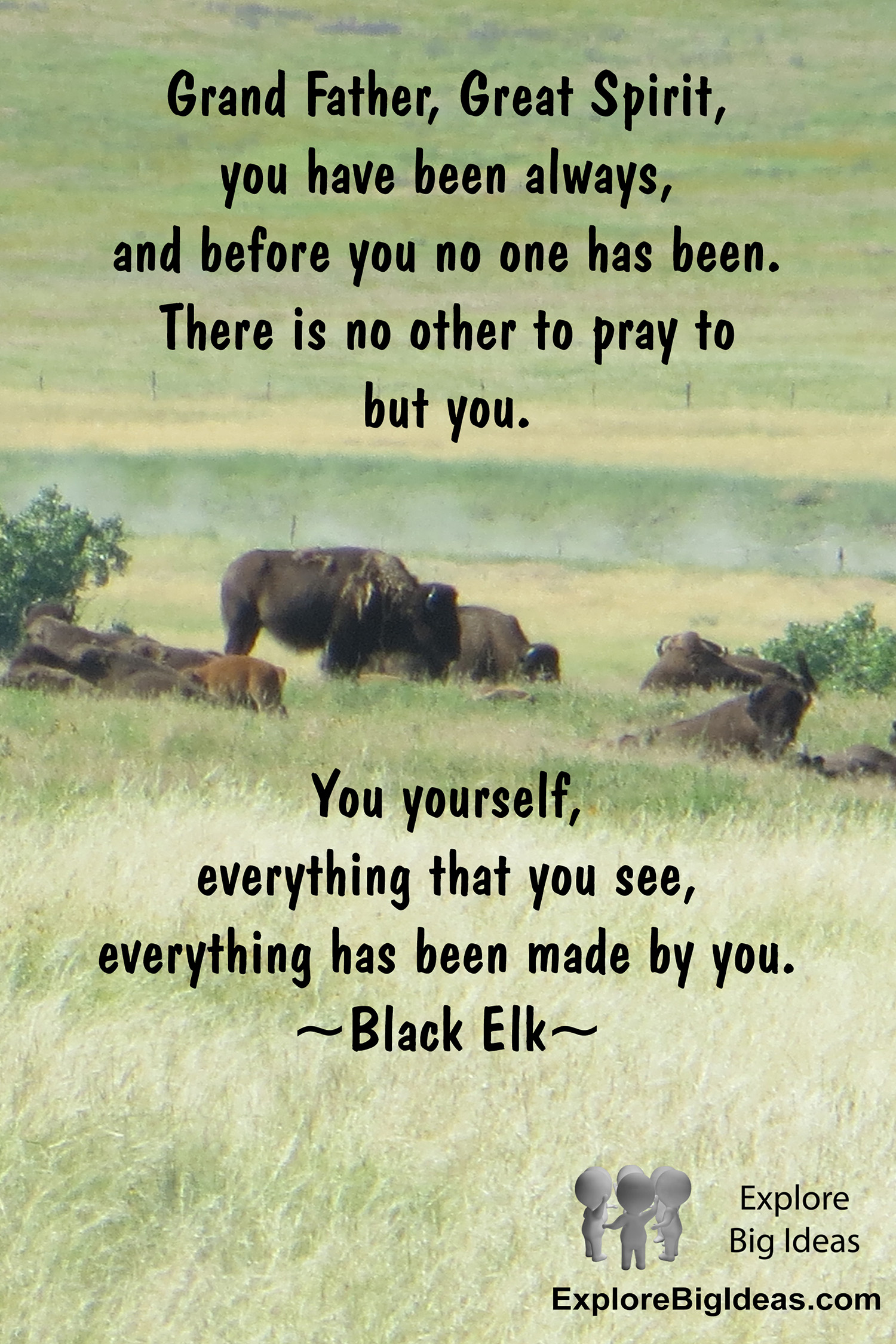Black Elk was a revered spiritual leader of the Lakota Sioux tribe known for his deep understanding and connection to the Great Spirit. His life was filled with struggles, triumphs, and a profound understanding of the traditional ways of his people. In this blog post, we will explore the life and legacy of Black Elk, a Native American medicine man whose teachings and wisdom continue to inspire and guide people to this day.
Grand Father, Great Spirit,
You have been always,
and before you no one has been.
There is no other to pray to but you.
Black Elk's Life
Black Elk, also known as Heȟáka Sápa in the Lakota language, was born in December 1863 in what is now known as North Dakota. He was born into the Oglala Lakota tribe, a division of the larger Sioux Nation. His father, also a medicine man, was killed in the Battle of Little Bighorn, leaving Black Elk to be raised by his grandparents. From a young age, Black Elk showed a strong connection to the spiritual world, often having vivid dreams and visions that would shape his understanding of the world.
As a member of the Lakota tribe, Black Elk was deeply rooted in his cultural traditions and beliefs. He was raised to be a hunter and warrior. Still, his natural inclination towards spirituality led him to become a medicine man at 17. He was mentored by his uncle, a renowned medicine man. He spent years learning the traditional ways of healing and connecting with the spirit world.
At the age of nine, Black Elk had his first significant vision during a severe illness. This experience would shape his life and set him on a path toward becoming a powerful spiritual leader. In his vision, he saw himself being taken to the spirit world by the Thunder Beings, where he was shown the sacred hoop of all living things and the interconnection of all beings. This vision would become a central theme in his teachings and guide his understanding of the world.
In December 1890, tragedy struck the Lakota people when the US Army massacred hundreds of unarmed Sioux at Wounded Knee. Black Elk, who had been involved in the Ghost Dance movement, was present at the massacre and witnessed the brutal killing of his people. The massacre deeply affected Black Elk, and he later described it as a turning point in his life.
Black Elk: Spiritual Leader
[Great Spirit]
You yourself,
everything that you see,
everything has been made by you.
After the massacre, Black Elk dedicated himself to becoming a spiritual leader and preserving the traditional ways of his people and sharing their teachings with the world. He traveled with Buffalo Bill's Wild West Show, where he met and interacted with people from different cultures, further expanding his understanding of the world and the importance of preserving his culture and spirituality.
As a spiritual leader, Black Elk was a keeper of the sacred pipe, a symbol of peace and unity in the Lakota culture. He also introduced the Seven Sacred Rites, a series of ceremonies essential to the Lakota people's spiritual well-being. These rites included the vision quest, sweat lodge, and the sun dance, all meant to connect individuals with the spirit world and promote harmony and balance in their lives.
Black Elk's teachings and wisdom continue to inspire and influence people from all walks of life. Based on his interviews with John Neihardt, a poet and writer, his book, Black Elk Speaks, has been translated into multiple languages and has sold millions of copies worldwide. His message of unity and interconnection of all beings remains relevant and powerful, especially in today's world, where divisions and conflicts are prevalent.
Conclusion
In conclusion, Black Elk was not just a medicine man but a spiritual leader, teacher, and visionary. His life was a testament to the Lakota people's resilience, wisdom, and deep connection to the spiritual world. His teachings continue to guide and inspire many, and his legacy lives on, reminding us of the importance of preserving and honoring our cultural traditions and beliefs.


